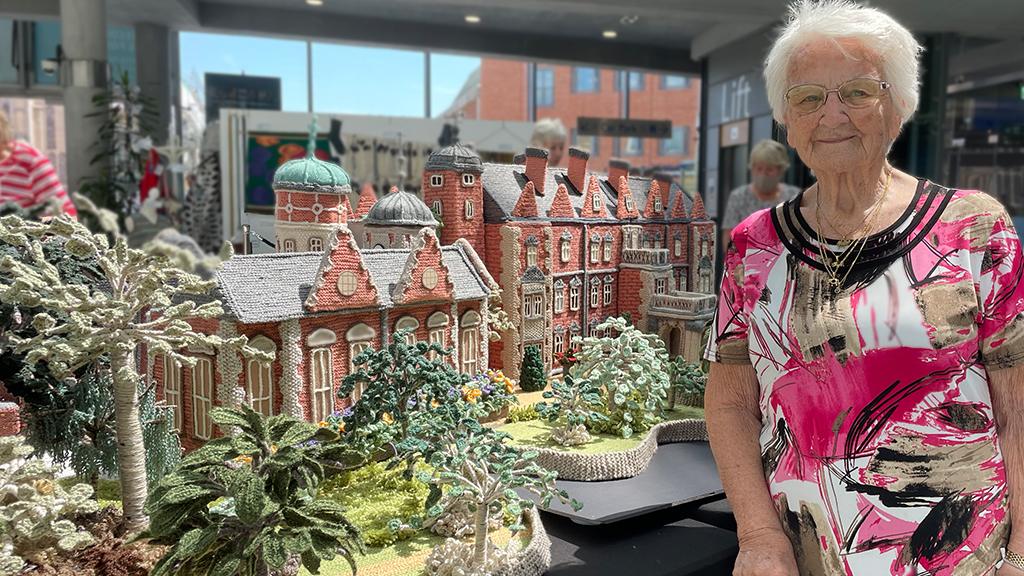Royal Christmas message: King's speech marks new era for 90-year tradition
- Published
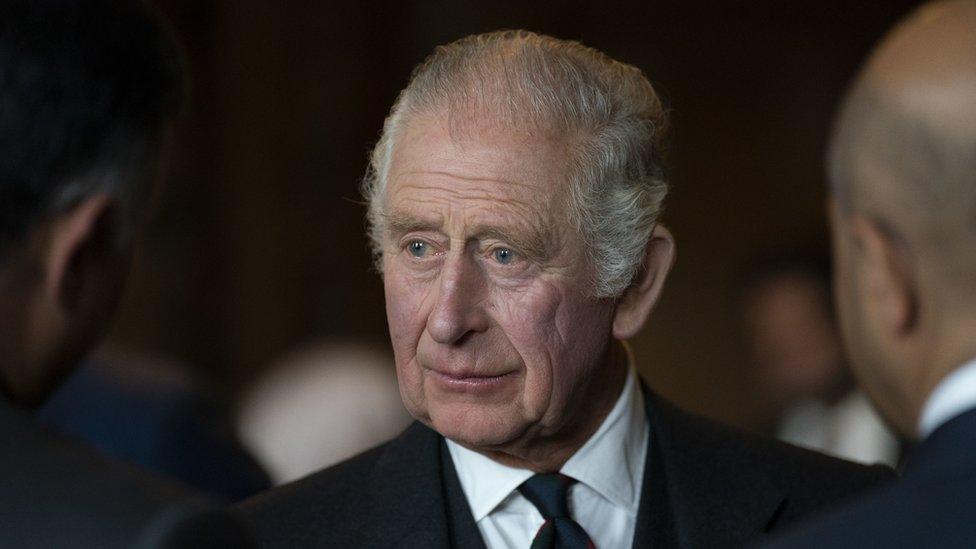
The royal Christmas message broadcast is part of a tradition that is heading to 100 years old
It is the first year King Charles III will take on the royal tradition of delivering a Christmas message to the United Kingdom and Commonwealth nations. Over the years, the address has not only become a time capsule of its day, but a representation of how far technology has progressed.
Ninety years ago, at 15:00 GMT on 25 December 1932, a new Christmas tradition began.
King Charles III's great-grandfather, King George V, addressed the UK and British Empire in a radio broadcast on the one-week-old BBC Empire Service - now the BBC World Service.
For several years, the BBC's founder Sir John Reith had tried to convince the King to agree to deliver an address, but the monarch had remained hesitant to increase his exposure.
Eventually he agreed and the famous British author Rudyard Kipling, author of the Jungle Book, was enlisted to write the speech for him.
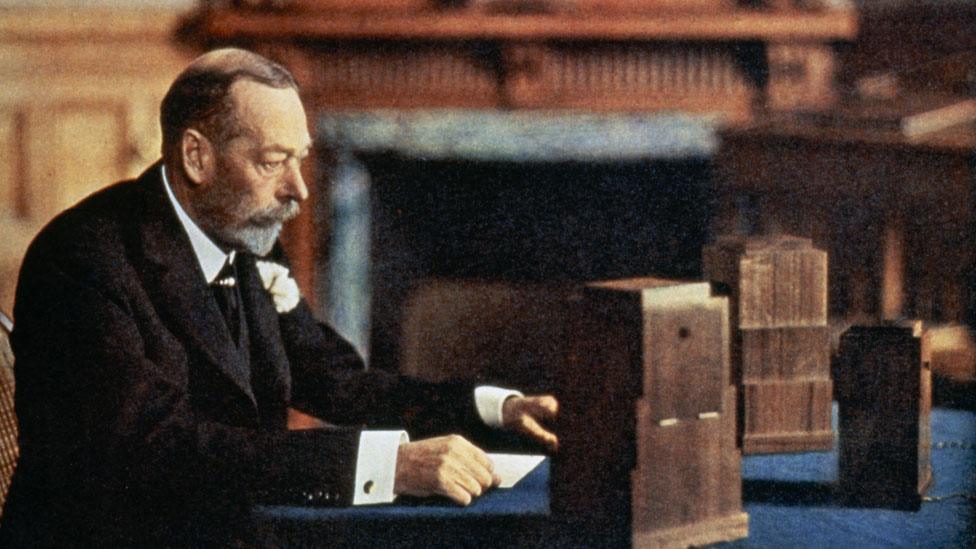
George V's first Christmas speech was so popular the one-off event became an annual tradition
The first Christmas speech was broadcast live from the Sandringham Estate in Norfolk, in the east of England, and followed a special programme called All the World Over, where British citizens from the Empire shared their Christmas greetings.
Hearing voices from around the world was a key element to the broadcast that pushed the capabilities of broadcasting at the time.
An attempt had failed the year before, but this time the programme was a success - with listeners hearing about the snow in Canada, nightfall in Australia and the King's voice sounding from a special microphone built to mark the occasion.
While King George's voice had been heard on the radio before, it struck the audience how intimate it was for the British monarch to speak to them from his home to theirs - particularly those homesick overseas.
BBC historian Robert Seatter explained "it was a big moment just to hear his voice come crackling over the airwaves".
Reports at the time revealed listeners stood up when they heard the King speak and the BBC post bag became incredibly full of people sharing what the Christmas address meant to them.
At first, the address was regarded as a one-time event, but its popularity led to it becoming an annual tradition, with minor exceptions over the years.

George VI
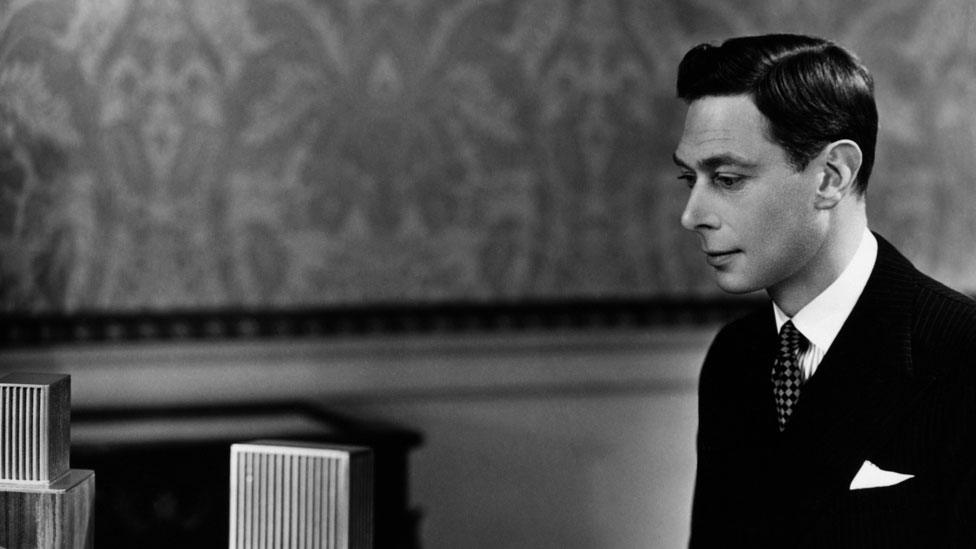
George VI delivered his speeches with a slow, careful delivery due to his speech impediment
No Christmas message was delivered in 1936 as King Edward VIII abdicated the throne two weeks earlier.
The next monarch to do the address was George VI the following year.
A distinctive quality of his speech was his very slow delivery of his message.
As depicted in the 2010 film, The King's Speech, King George VI had a speech impediment, which made the increasingly prominent role broadcasting had in the work of a monarch challenging.

Elizabeth II
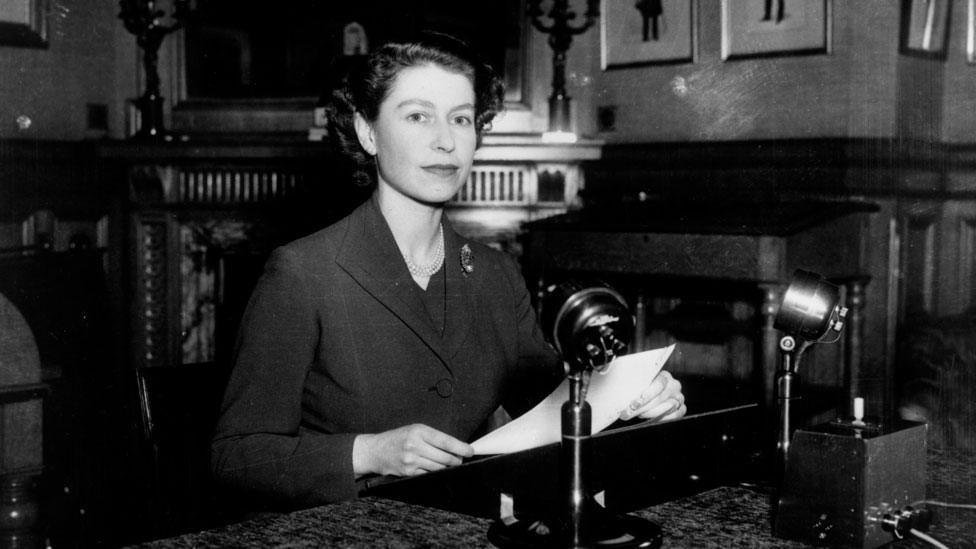
Queen Elizabeth II made her first speech in 1952, sitting at the same desk her father and grandfather used to deliver their addresses
As the longest-serving British monarch in history and a Queen who ruled in a time of great technological development, Queen Elizabeth II made the Christmas speeches her own.
Sitting at the same desk her father and grandfather had used, she commented in her first speech that her children, including four-year-old Charles, were enjoying the day, which she described as the "children's festival" to honour the birth of Jesus.
Five years later, she made her first televised Christmas broadcast. Sixty-three televised Christmas addresses followed with further developments in technology, including broadcasts in colour from 1967 and for the first time, in 3D, in 2012.

King Charles III
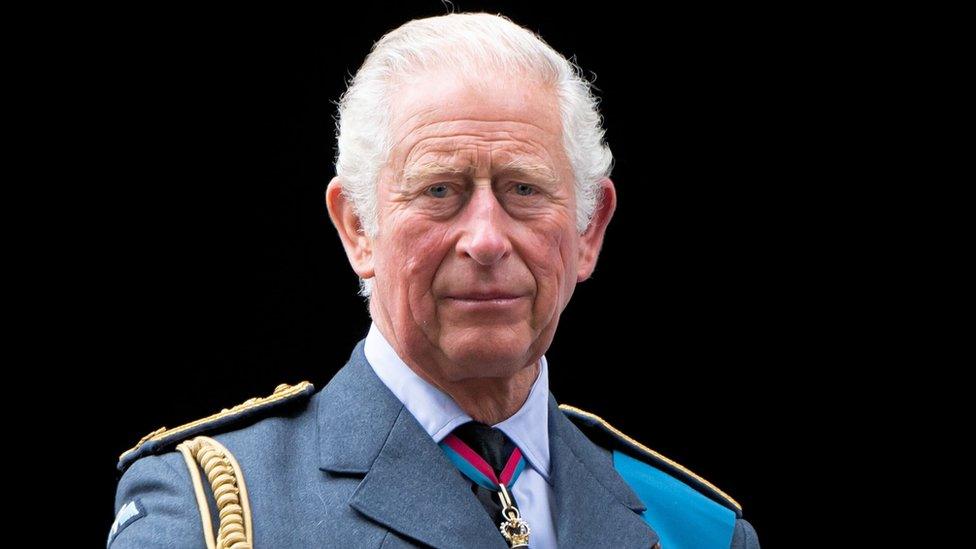
The royal Christmas message has become an annual tradition for many viewers
This year marks the first time King Charles III will take on the tradition.
Technology has advanced with both radio and traditional television channels facing competition from streaming services, the internet and social media.
Still, Prof Kate Williams, from the University of Reading, believes the tradition will continue for years to come, due to the aspect of accountability which has gradually appeared in the Christmas address.
"Seeing it in a modern way, you can almost see it as a performance review" at work, she said.
"The monarch is taxpayer funded. It has to be seen," she added, which is why Queen Elizabeth II particularly focused her speeches on what the Royal Family had been up to over the past year.
Prof Williams believes the new King will increase the number of televised broadcasts he does during his reign rather than reduce.
The Christmas speech will be available to watch on BBC One and iPlayer on Christmas Day at 15:00 GMT.

Find BBC News: East of England on Facebook, external, Instagram, external and Twitter, external. If you have a story suggestion please email eastofenglandnews@bbc.co.uk, external
Related topics
- Published25 November 2022
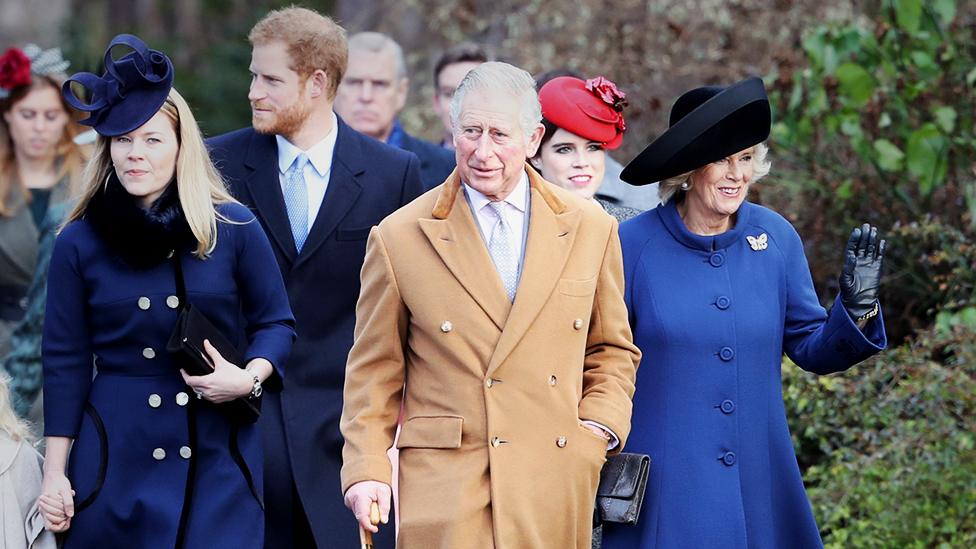
- Published24 November 2022
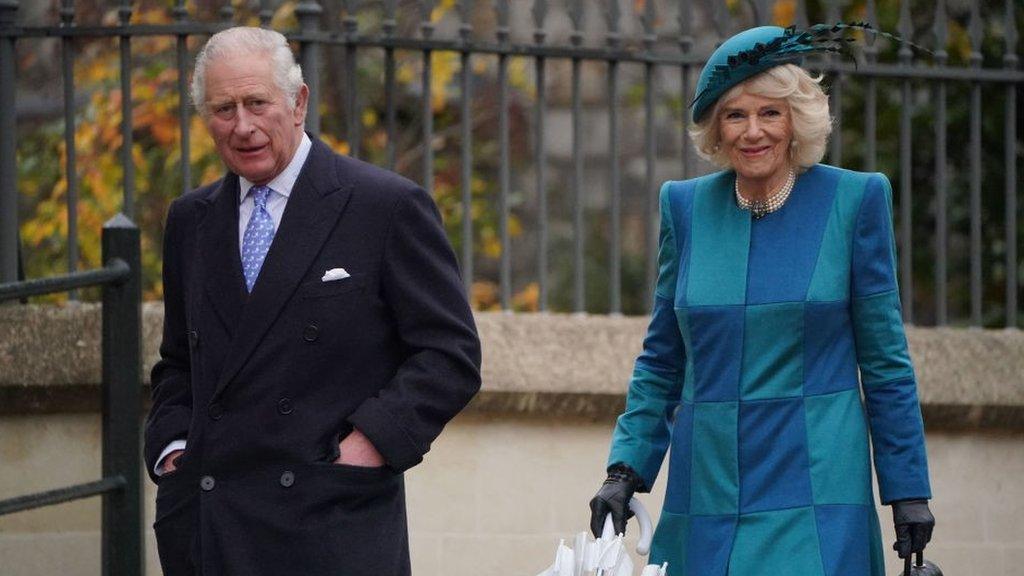
- Published17 September 2022
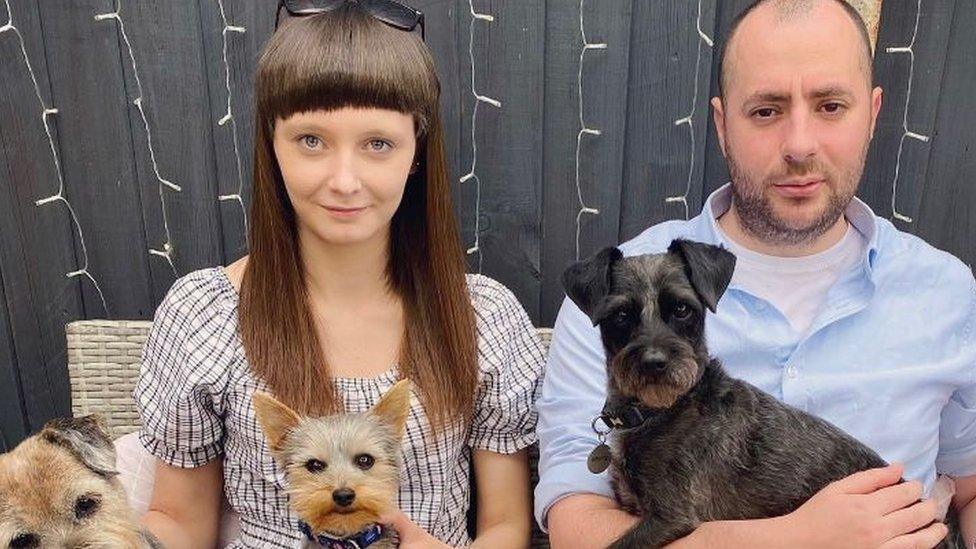
- Published23 December 2021
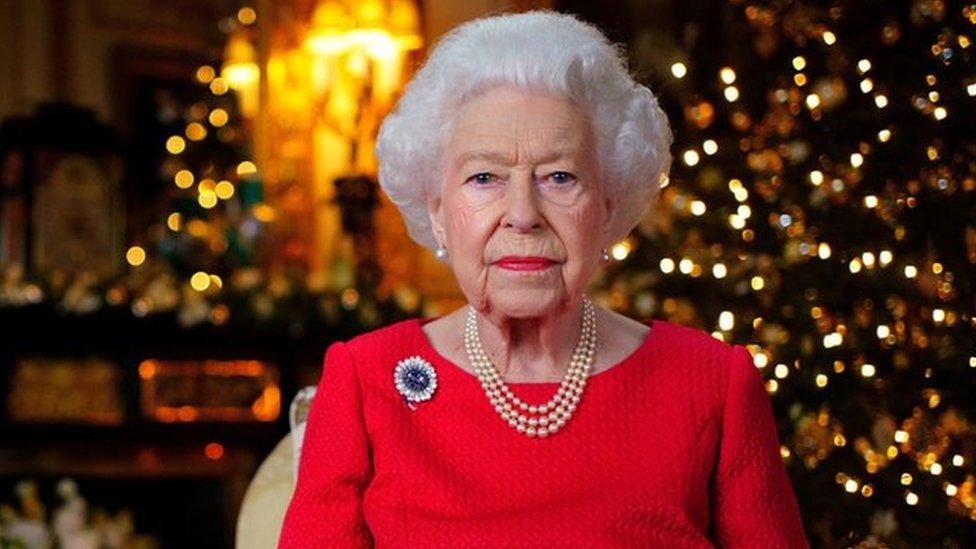
- Published2 June 2021
